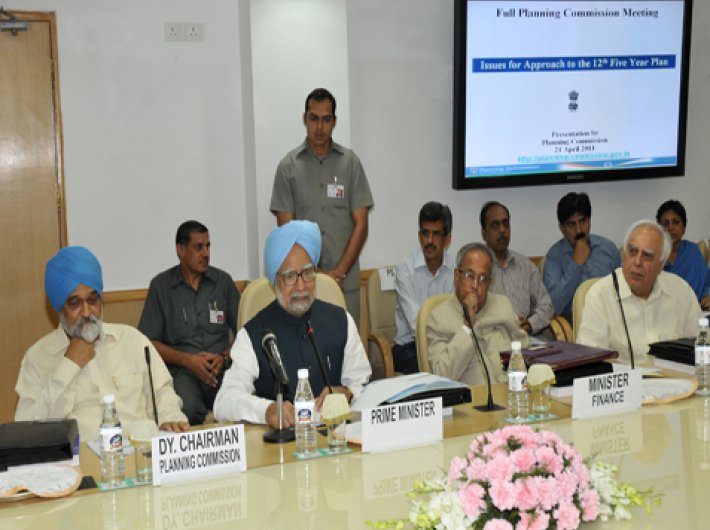Planning commission officials in dark about fate of the panel and that of over 1,000 employees
After making an announcement in his Independence Day speech that his government would scrap the six-decade old planning commission to set up a new think-tank, Prime Minister Narendra Modi on August 19 invited, via Twitter, public views on the shape of the new body.
He tweeted: “Inviting you to share your ideas on what shape the new Institution to replace the Planning Commission can take.”
“We envision the proposed institution as one that caters to the aspirations of 21st century India and strengthens the participation of the states,” read another tweet.
A special forum has been created for inviting public views on this.
In the apex planning body, however, tension was palpable. Officials say they have been “kept in dark” about the fate of the body and that the decision had been taken unilaterally.
A joint secretary rank plan panel official told Governance Now: “We don’t have a roadmap yet, as to what the government plans to do. There was no consultation internally. All we were asked was the origin and history of the plan panel.”
On August 12, the Planning Commission secretary office received a set of queries from the prime minister’s office, seeking to know about the executive order through which the plan body was set up; minimum and maximum number of members it has had throughout its history and the nature of appointments.
Another official, requesting anonymity, added that whatever decision the government takes, it should expedite the process of recasting the body in whatever shape it wishes as "it is taking toll on the day-to-day functioning.” “The delay and noise around its existence has made the body irrelevant. It is hampering the routine activities here. If a reply to a query from a ministry would take a week earlier, it is now taking several weeks. Nobody is taking plan panel notings seriously.” The planning commission is the nodal body for inter-ministerial and centre-state co-ordination for various social sector programmes of the government.
While in the absence of a deputy chairman, plan panel (which is a permanent invitee to all cabinet meetings) has no representation in cabinet meetings, various officials are members of a number of committees. For example, the secretary of plan panel is a permanent member of the telecom commission.
Another official said the delay in its recast would have an adverse impact on the economy. “By this time of the year mid-term appraisal of the 12th plan (2012-2017) would have happened. But it has not even started this time, due to the fog over the body's fate. When the economy is already slipping, such delay is gravely harmful for the country,” he said. Mid-term appraisal is a performance evaluation exercise the plan panel does in the third year of every five-year plan. The appraisal then follows course-correction measures to meet economic and social targets set in the five-year plan.
Officials said they were completely in dark about the fate of the body and the fate of over 1,000 employees working in the plan panel and its associated bodies like Independent Evaluation Office, Unique Identification Authority of India, Rainfed Authority of India, and others.
The plan panel was established by Jawaharlal Nehru by a resolution of the Union government in March 1950 with a mandate to “formulate a plan for the most effective and balanced utilisation of the country’s resources; indicate the factors which are tending to retard economic development, and determine the conditions which, in view of the current social and political situation, should be established for the successful execution of the plan”.
But down the years, it got “diverted from its mandate and became too powerful because of the proximity with the PMO” said an expert. In the past, Tamil Nadu chief minister J Jayalalithaa and Modi himself (then Gujarat chief minister) had attacked the plan panel for being irrelevant and interfering with states’ work. Speculation was rife from the day Modi took oath that the plan panel would either be scrapped or overhauled.

